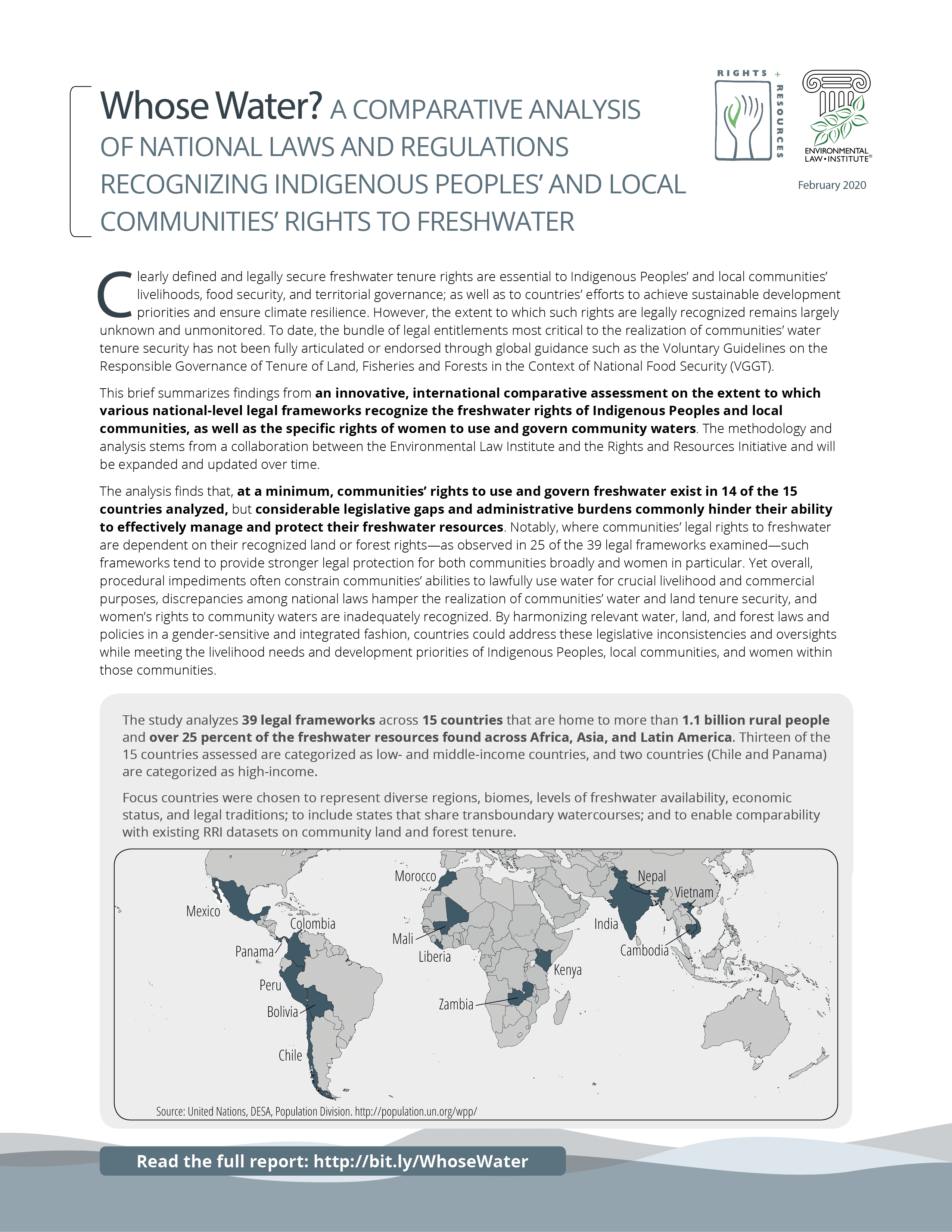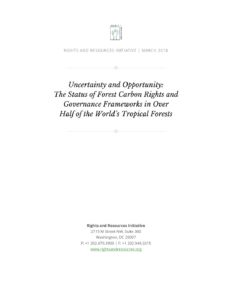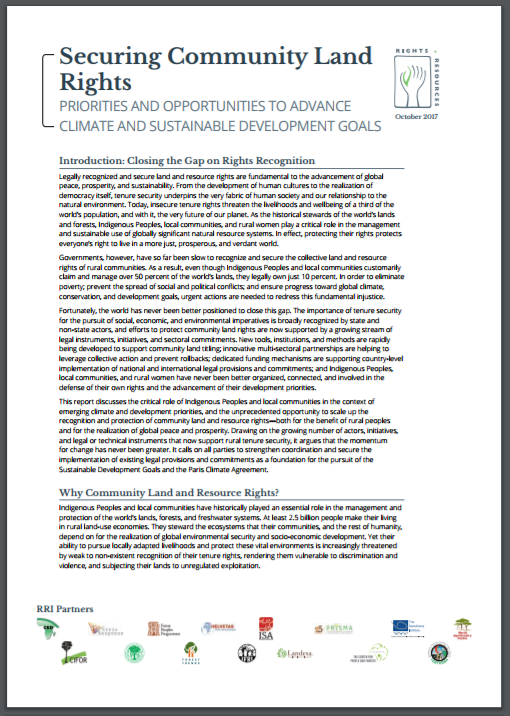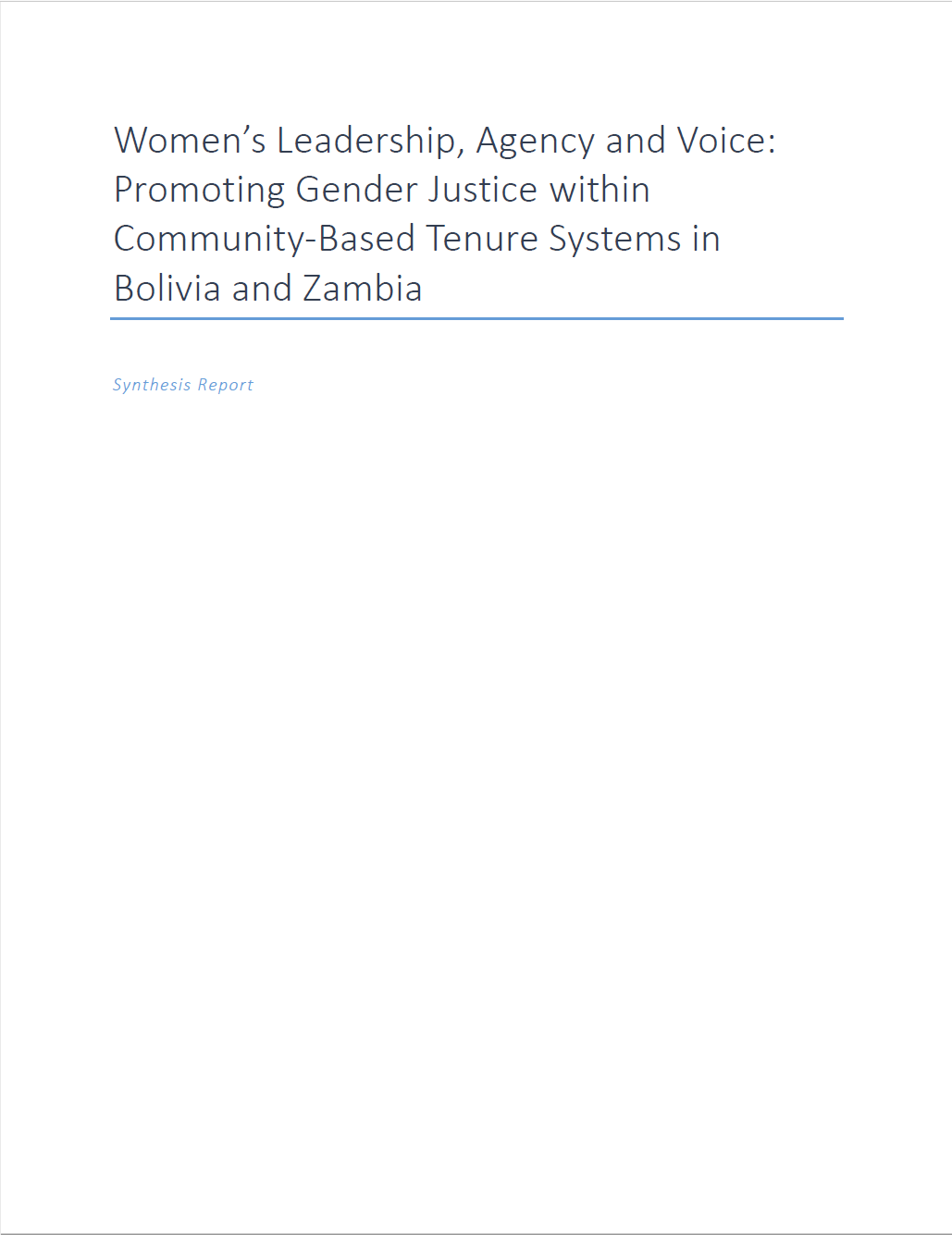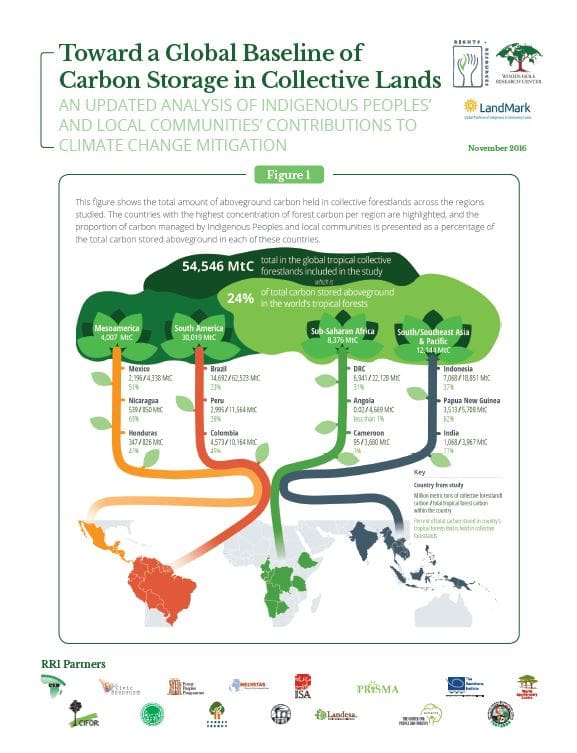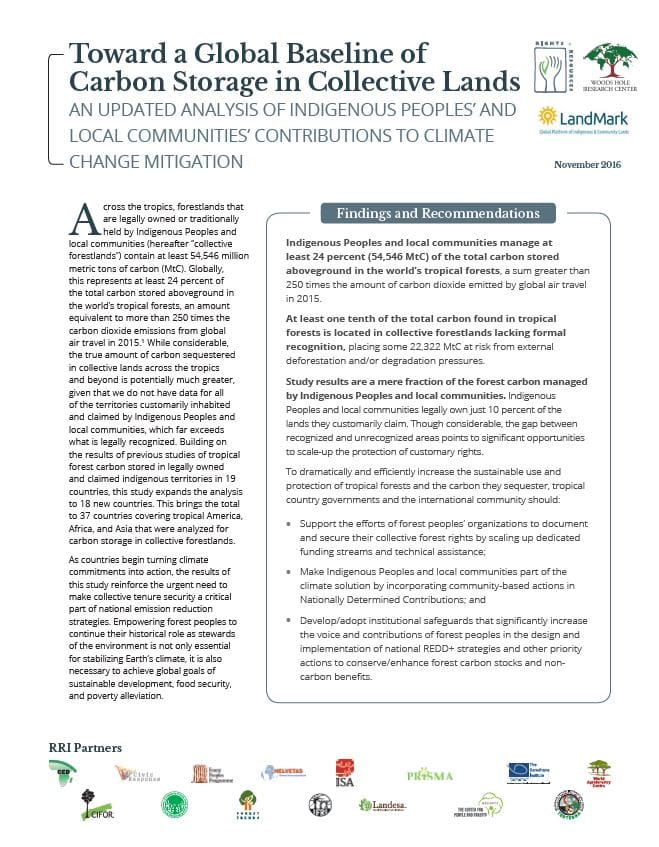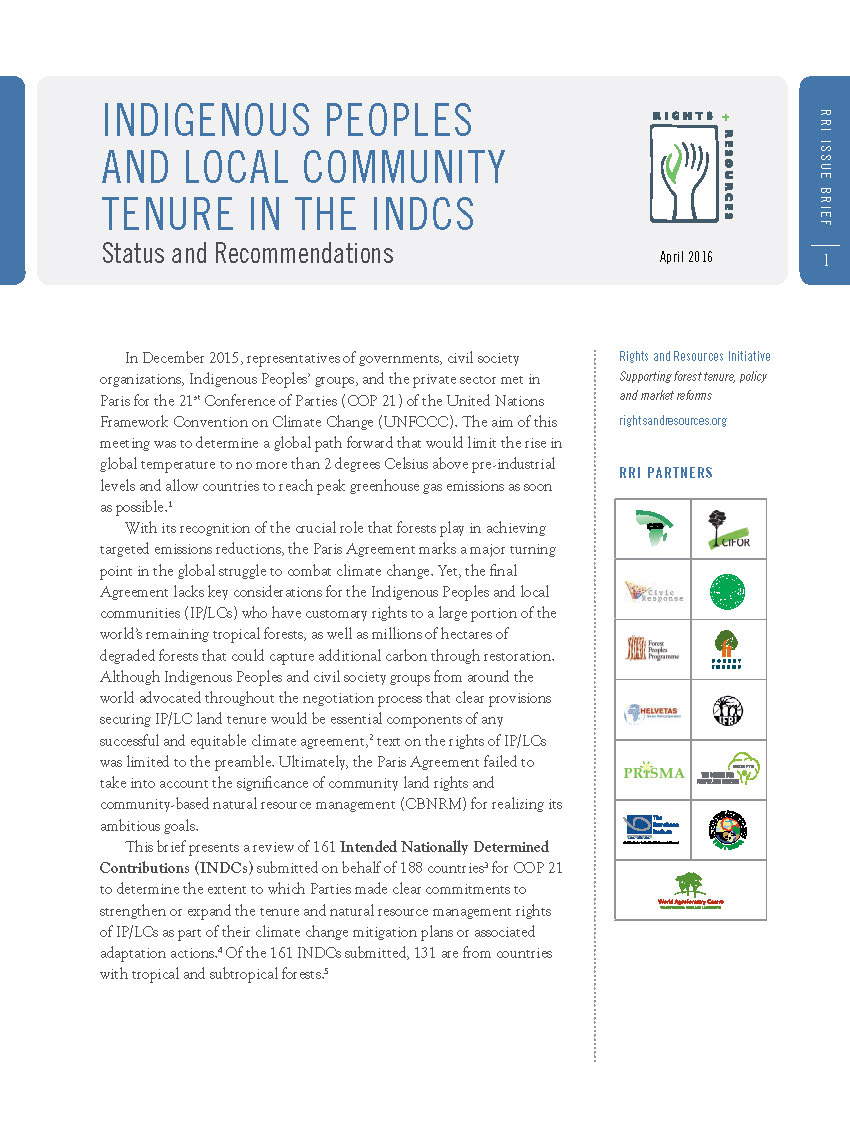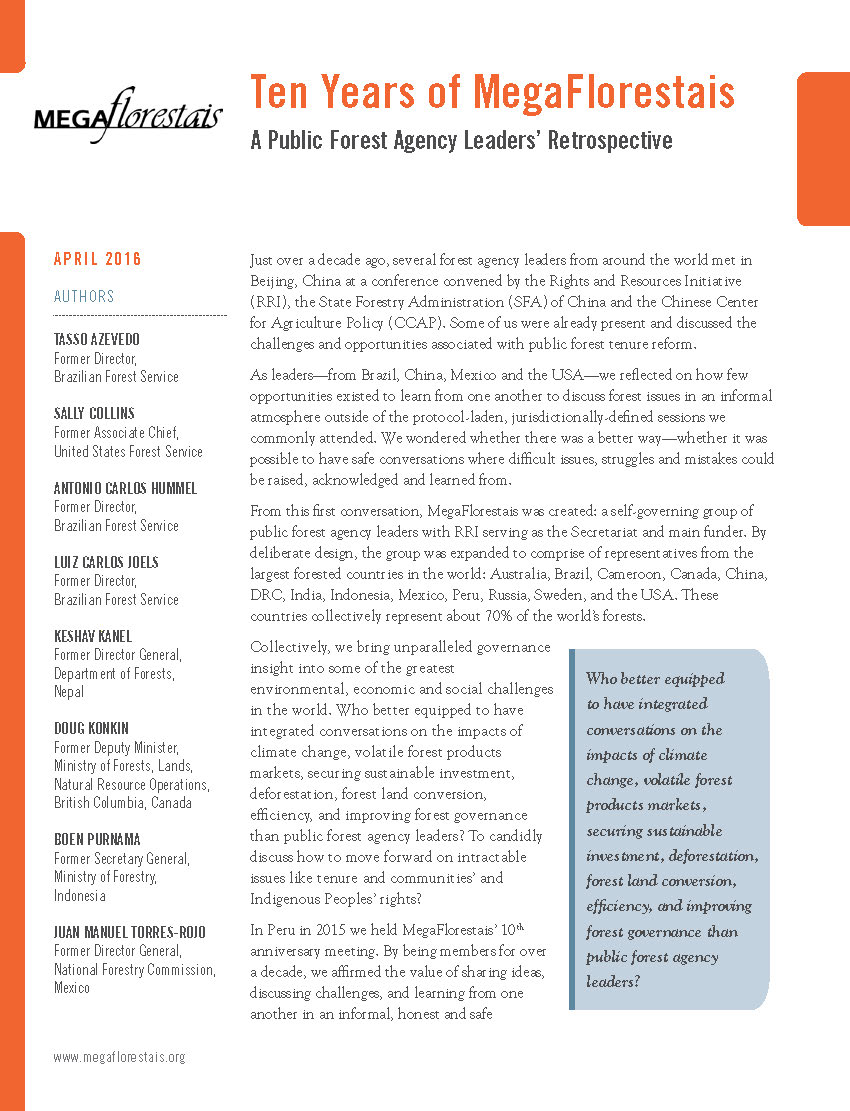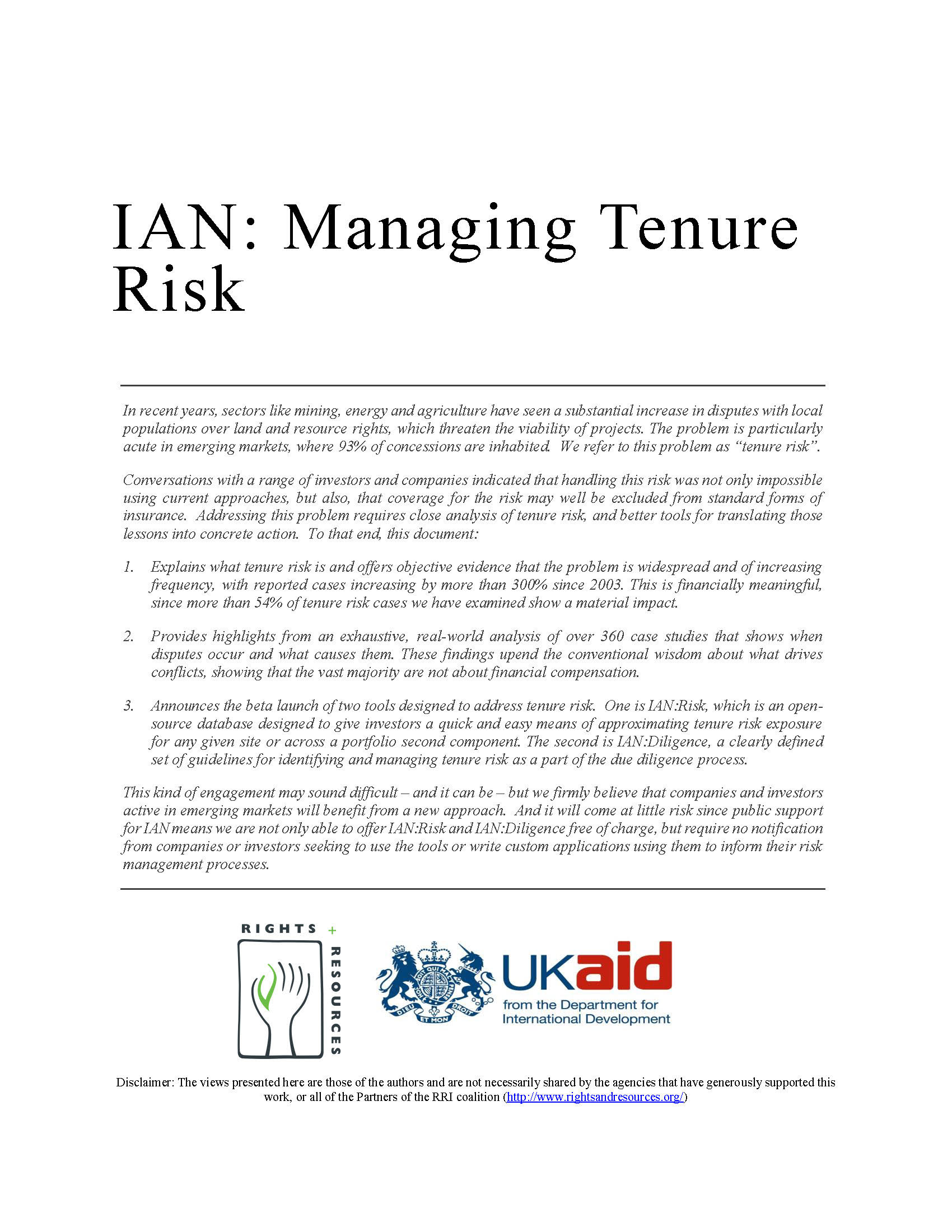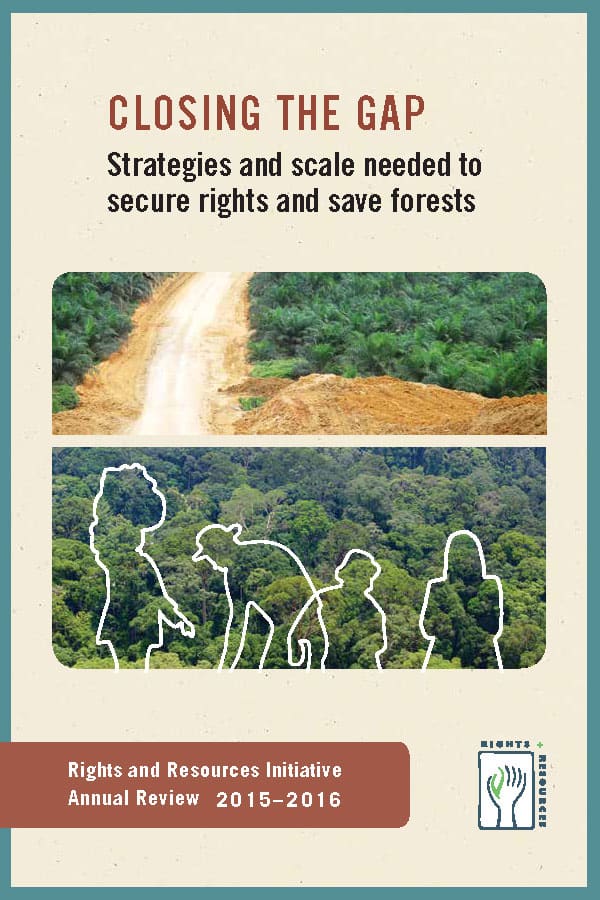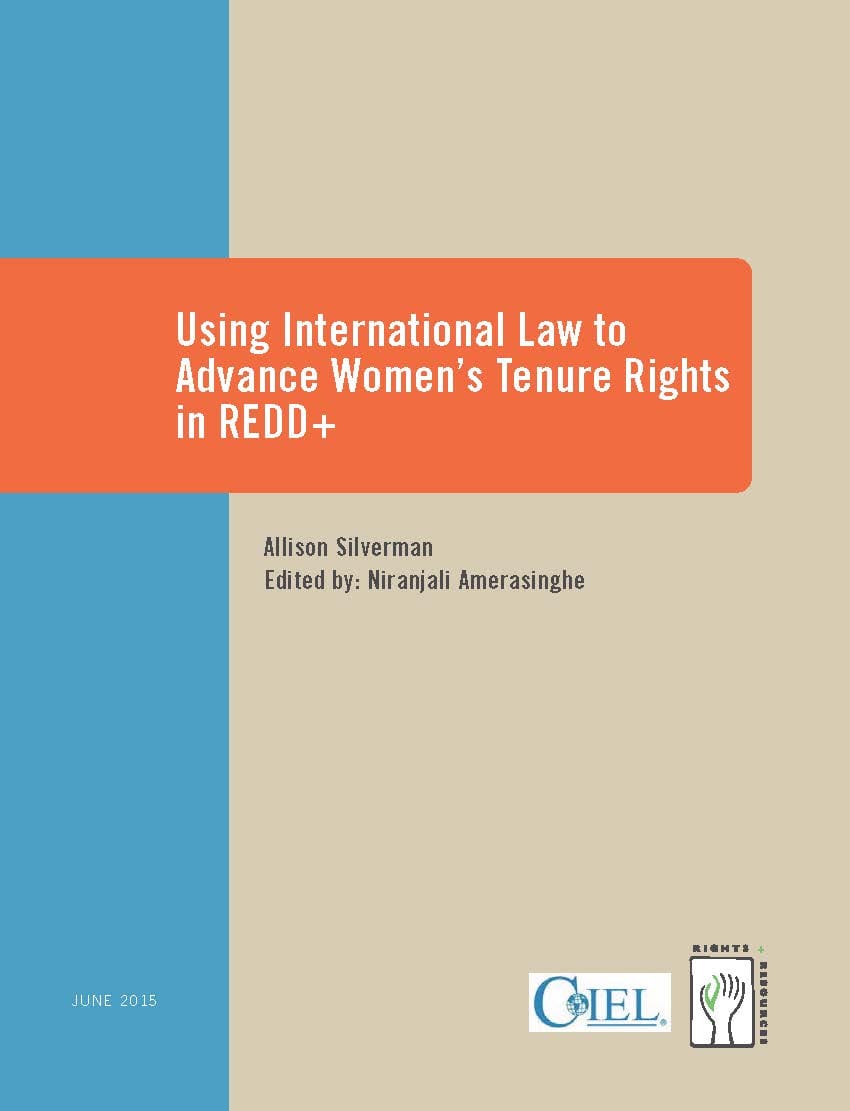Over the course of 2022, one hundred leaders of grassroots networks in 22 countries—men, women, and youth among Indigenous Peoples, local communities, and Afro-descendant Peoples—were interviewed about their hopes, dreams, and fears for the future.
This report identifies possible pathways towards the integration of a rights-based approach in the legal conservation frameworks of Colombia and Peru. It does so in the context of tenure rights recognition for Indigenous Peoples (IP) and Afro-descendant Peoples (ADP) as an effective strategy for biodiversity protection in the Amazon. With this in mind, it highlights opportunities for implementing a rights-based approach within current and medium-term conservation frameworks and policies in both countries.
This research provides a timely reminder of the global significance of community-held lands and territories; their importance for the protection, restoration, and sustainable use of tropical forestlands across the world; and the critical gaps in the international development architecture that have so far undermined progress towards the legal recognition of such lands and territories.
After more than a decade of engaging with Indigenous Peoples and local communities through REDD+ readiness and implementation efforts, participant countries of the Forest Carbon Partnership Facility (FCPF) have gained insights into what is needed to strengthen communal and collective land forest tenure. This comprehensive report provides an assessment of countries affiliated with the FCPF's Carbon Fund and lays out cross-cutting challenges as well as opportunities to advance Indigenous Peoples' and local communities' land rights.
In December 2015, the Paris Agreement was adopted at the 21st Conference of the Parties (COP21) of the United Nations Framework Convention on Climate Change (UNFCCC). Five years after the submission the NDC proposals and their initial implementation, signatory countries had to update and share the progress of their NDCs in 2020. This study carried out by Asociación Ambiente y Sociedad, ONAMIAP (National Organization of Andean and Amazonian Indigenous Women of Peru) and RRI analyzes the degree that human rights, women’s rights, and the rights of Indigenous Peoples and Afro-descendants are included in the NDCs of Colombia and Peru, as well as in the processes related to updating them.
A growing body of evidence suggests that recognition of the collective tenure rights of Indigenous Peoples, local communities, and Afro-descendants is a powerful and cost-effective strategy for addressing the climate and biodiversity crises. In spite of this, international funding for rights recognition pales in comparison to donor mobilization around alternative solutions to these crises.
This report presents an innovative, international comparative assessment on the extent to which various national-level legal frameworks recognize the freshwater tenure rights of Indigenous Peoples, Afro-descendants, and local communities, as well as the specific rights of women to use and govern community waters.
If properly leveraged, natural climate solutions can contribute over 37% of cost-effective CO2 mitigation by 2030. Evidence shows Indigenous Peoples and local communities are key to achieving such outcomes. This report presents the most comprehensive assessment to date of carbon storage in documented community lands worldwide.

At a Crossroads: Consequential Trends in Recognition of Community-Based Forest Tenure from 2002-2017
This analysis reports on trends in global forest tenure from 2002-2017. It is the fourth in a series of analyses monitoring the legal recognition of forest tenure around the world.
This brief presents a review of the nominal progress made in the national-level laws and regulations that govern the carbon trade and define the rights of parties—across a sample of 24 countries in Africa, Asia and Latin America. These countries collectively hold more than 50 percent of global tropical and subtropical forests.
This report discusses the critical role of Indigenous Peoples and local communities in the context of emerging climate and development priorities, and the unprecedented opportunity to scale up the recognition and protection of community land and resource rights—both for the benefit of rural peoples and for the realization of global peace and prosperity.
This paper proposes a framework of analysis to systematically classify and evaluate legal pathways to secure recognition of community-based property rights.
This report synthesizes research findings on gender dynamics and the implications for gender justice in community-based tenure systems in Zambia and Bolivia.
Amid the realities of major political turbulence, there was growing recognition in 2016 that community land rights are key to ensuring peace and prosperity, economic development, sound investment, and climate change mitigation and adaptation.
Compelling quantitative evidence of the unparalleled role that forest peoples have to play in climate change mitigation.
A new report quantifying the carbon stored aboveground in tropical forests that are legally owned or traditionally held by Indigenous Peoples and local communities in 37 countries across tropical America, Africa, and Asia.
Between June and August 2016, the Colombian government made two announcements that will profoundly change the country. After four years of peace negotiations with the FARC guerillas,…
A review of submitted Intended Nationally Determined Contributions to determine the extent to which Parties made clear commitments to strengthen or expand the tenure and natural resource management rights of Indigenous Peoples and local communities as part of their climate change mitigation plans.
Just over a decade ago, several forest agency leaders from around the world met in Beijing, China at a conference convened by the Rights and Resources…
This report explains what tenure risk is and offers objective evidence that the problem is widespread and of increasing frequency, as well as provides highlights from a real-world analysis of over 360 case studies.
The annual review of the state of rights and resources, 2015-2016. Ten years ago, it was a struggle to make indigenous and community rights part…
A summary of findings on community ownership and control of lands in 13 countries in Latin America.
The first analysis to quantify the amount of land formally recognized by national governments as owned or controlled by Indigenous Peoples and local communities around the world.
This paper makes a case for advancing women’s tenure rights and how international law can be used to promote those rights in the context of REDD+.

